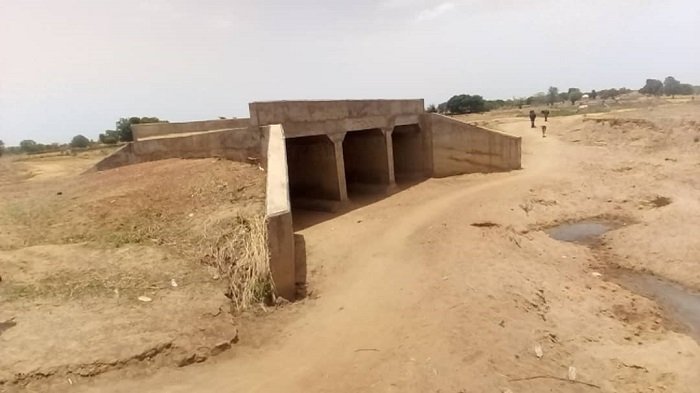
Residents and road commuters in the Tempane District of the Upper East Region, have raised a red flag over abandoned road projects in the district by contractors.
The residents feared the roads would deteriorate further if the rains set in.
The residents described the broken culverts on the 10-kilometre stretch of the Bugri-Kulbore road as death trap, arguing the situation could be dire as heavy downpours can begin any time soon, and that, it had become a nightmare to ply on the roads since they were riddled with potholes.
They made this disclosure when Ghanaian Times, visited the district to ascertain at first hand the state of road network over the weekend.
When contacted, an engineer from the Department of Feeder Roads in the region, Osei-Akoto, said efforts were being made to ensure contractors mobilise and go back to site to continue with their unfinished business to spare commuters the agony of eroded roads when heavy rains started.
MrAkoto added he had observed in the past years how commuters suffered to wade through flood waters on many roads in the region, and that, he had started getting in touch with the contractors to do the needful.
On the issue of the stalled construction of culverts on the Bugri-Kulbore road, he indicated the contract had been awarded to Araco Construction Company Ltd, and he (the contractor) was poised to returning to site to complete the project in the coming weeks.
He stated that the Araco Construction Company Ltd was handling five road projects in Tempane; namely the Gaago junction-Gaago Primary School road, Gaago junction-river boundary road and Nayoko-Goiti-Salaga road.
The rest are Bugri-Kulbore road and Kulbore-Gum-Woriyanga 25 kilometres road.
“Three box culverts are currently under construction, with the Nayoko-Goiti-Salaga culvert almost completed”, he disclosed.
The Managing Director for Araco Construction Company Ltd, Robert Atule, said the delay in working on the finishing touches of the projects were ascribed to the prolonged conflicts that erupted at Bawku between two major tribes-Mamprusis and Kusasis-resulting in the killing of several people, with lots of property destroyed.
According to him, work was moving steadily but his workers were compelled to pack out of the site when the Bawku impasse struck for nearly six months.
He reaffirmed his commitment to mobilising to go back to site to complete the construction works since the conflict in Bawku had taken a low profile.
FROM FRANCIS DABRE DABANG, TEMPANE







